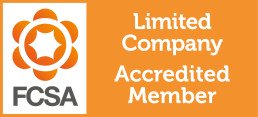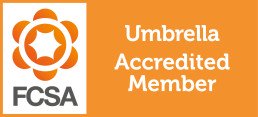Share this article

HMRC recently hit a tax avoidance scheme promoter with a £1 million fine, close to the maximum fine allowed by the First Tier Tribunal. Continue reading to learn more about this case and why you should never engage with a tax avoidance scheme.
Overview of the case
Hyrax Resourcing Ltd promoted a disguised remuneration scheme that involved diverting money to an offshore trust in Jersey. The disguised remuneration scheme paid users the National Minimum Wage, and the remainder of their earnings were paid as loans from an offshore trust in Jersey. As the loans were not declared as income on the users’ tax returns, it meant they did not pay tax on all of their income.
The ruling from the First Tier Tribunal follows a previous HMRC tribunal win in 2019, where Hyrax Resourcing Ltd was ordered to provide details of the tax avoidance scheme they promoted, along with information about its users. As a result, Hyrax Resourcing Ltd was fined £1 million for failing to disclose the avoidance scheme to HMRC. The scheme was the successor to the K2 avoidance scheme reported in the early 2010s.
HMRC’s Director of Counter-Avoidance, Mary Aiston, said:
“This £1 million fine should serve as a stark warning to tax avoidance promoters. Those who ignore their legal duty will face serious consequences.
We actively tackle promoters of tax avoidance schemes and are determined to drive them out of business. We continue to use the full force of the law to challenge tax avoidance scheme promoters.”
The win against Hyrax Resourcing Ltd supports HMRC’s drive to stamp out promoters of tax avoidance schemes and the tax avoidance schemes they promote. As part of this drive, HMRC has used new powers to name and shame tax avoidance schemes and their promoters publicly. As a result, two of which have since gone into liquidation.
How to spot a tax avoidance scheme
If it looks too good to be true, then it probably is. To spot a tax avoidance scheme, you should look out for the following:
A scheme that does not deduct the appropriate amount of tax and allows you to keep more of your income than legally allowed
Do not engage with schemes where you are not paying the full amount of Income Tax and National Insurance Contributions (NICs) on your earnings. It is important to bear in mind that the basic rate of Income Tax is 20%, and you will also be paying Employee’s NICs at a rate of 13.25% on earnings above the primary threshold.
Some or all of the payments made to you are classed as non-taxable
These payments will often not be listed on your payslip and could be described as shares, fiduciary, bonuses, annuities, capital payments/advances, credit facility, receipts or something similar. These payments are no different to regular income and are classed as normal earnings. Therefore, you will need to pay Income Tax and NICs on them.
Only part of the payments you receive are taxed as income
Regardless of how much you earn, if you are only receiving part of your income (often close to the national minimum wage) that is subject to tax deductions, and the rest are tax-free – this is most likely a tax avoidance scheme. All your earnings are classed as income and subject to tax deductions.
The scheme is approved by HMRC
HMRC does not approve schemes, and you should be very wary of schemes that claim they have received approval, as this will not be the case.
You are asked to sign more than one contract
This is sometimes a tell-tale sign of a tax avoidance scheme. If a compliant umbrella company employs you, you will only be asked to sign one contract of employment.
It is unclear how your income will be paid
If your contract of employment does not state how your earnings will be paid to you or provide a breakdown of all deductions that will be made to your earnings, this could be a sign of a tax avoidance scheme. Legally, all umbrella companies must make the same tax deductions set by HMRC.
You are offered an ‘enhanced’ scheme
You may be offered the option to choose an ‘enhanced’ scheme which may be presented to you as the more tax efficient option – most likely a tax avoidance scheme.
No accreditation from a trustworthy industry body
No accreditation from a trustworthy self-regulatory body such as the FCSA indicates that the providers processes may not be comply with UK tax law. All umbrella companies that have achieved FCSA accreditation have successfully been able to prove they operate compliantly. Every audit and assessment undertaken by the FCSA is disclosed to HMRC – showing that companies that have achieved FCSA accreditation have nothing to hide.
Do not engage with a tax avoidance scheme
UK tax law is clear that taxpayers are accountable for getting their tax right. Taxpayers who use tax avoidance schemes will be required to pay the tax they owe when HMRC discovers they have underpaid tax. In many cases, promoters of tax avoidance schemes will wrongly reassure their clients that they do not need to be concerned when HMRC contacts them about their use of an avoidance scheme and underpaid tax.
Most of these avoidance schemes will also refuse to help their clients when the arrangements are challenged and will likely completely disappear. Promoters of tax avoidance schemes do not make their clients aware of the risks involved with using an avoidance scheme, for example:
- You may have to pay significant legal fees
- You may end up owing HMRC a lot of money in terms of underpaid tax, NIC, interest and potential penalties
- If they use false statements or documents, you could face a criminal conviction
- The risk usually always falls on the user of a tax avoidance scheme
- You could be marked as a high-risk taxpayer and be subject to ongoing checks by HMRC
For more information, please visit our page designed to help you identify a tax avoidance scheme. To view the current list of named tax avoidance schemes, promoters, enablers and suppliers, please visit the governments website.
Benefits of using an FCSA accredited umbrella company
In an increasingly crowded marketplace, the FCSA accreditation makes it easy for contractors and freelancers to identify which umbrella companies provide compliant services. To obtain FCSA accreditation, umbrella companies must undergo a comprehensive audit and thorough assessment to prove their internal procedures are in line with UK tax law.
Using an FCSA-accredited umbrella company will ensure you can work on temporary assignments with complete peace of mind. You will be paying the correct amount of National Insurance Contributions, and you won’t have to worry about facing an unexpected tax bill from HMRC in the future.
Are you looking for an FCSA-accredited umbrella company?
If you are interested in registering with an FCSA-accredited umbrella company, look no further! Churchill Knight Umbrella is proudly accredited by the FCSA and is delighted to offer you a compliant umbrella payroll service. If you would like to request a free take home pay illustration or register to our service, please give our expert team a call on 01707 871621. Alternatively, you can request a call for a later date, and one of our Sales Consultants will be in touch.
About Churchill Knight
Founded by an IT Contractor in 1998, Churchill Knight has become one of the most respected contractor accountants in the UK. We’ve helped over 20,000 contractors with their accountancy requirements. As well as our accountancy services, we also have an industry-leading PAYE umbrella company and dedicated in-house personal tax department. Whichever service you choose, you can move forward with complete peace of mind. We are proud of the reputation we’ve built over the years, and our FCSA accreditation proves how committed we are to compliance within our sector. Keep reading…


We're regularly adding new, helpful content
The Churchill Knight blog is regularly updated with helpful content for contractors and freelancers – especially articles that answer the most frequently asked questions about umbrella companies! Please pop back shortly to see the latest articles written by Andrew Trodden (Marketing Manager) and Clare Denison (Marketing Executive).
